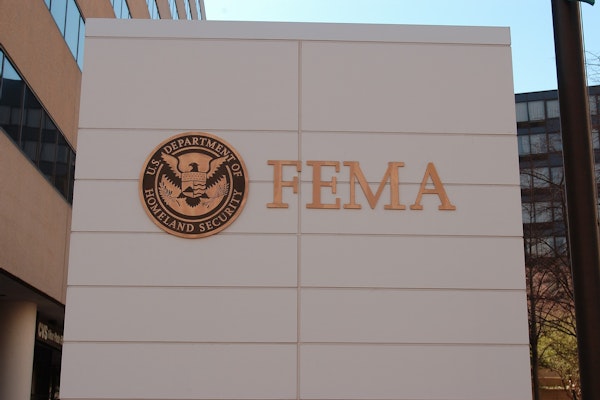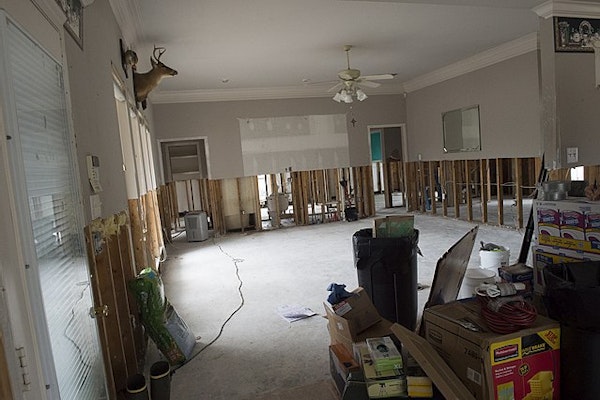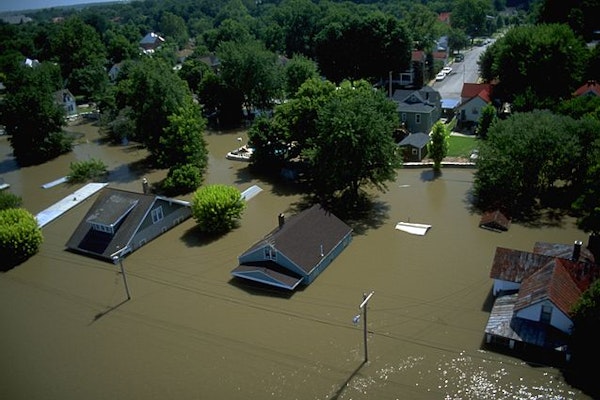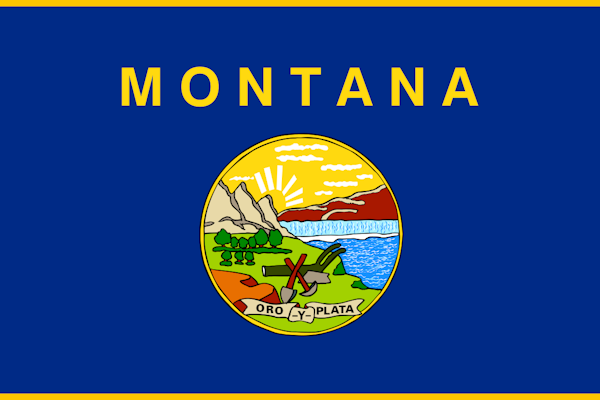
Motorcycles Help Beat Traffic but Safety Must Stay in the Fast Lane
Motorcycles can significantly reduce congestion, but riders and drivers alike must prioritize safety, especially in states where lane splitting is legal or gaining ground.
May 8
Auto
Education & Training
Legislation & Regulation
Risk Management
California
Montana
Utah

Millions of Homeowners Risk Being Underinsured for Detached Structures
AI-based analysis reveals nearly half of U.S. properties have overlooked secondary structures, highlighting risks for homeowners and insurers alike.
December 19, 2024
Property
Risk Management
Technology
Underwriting
California
Georgia
Montana
North Carolina
Rhode Island

Wildfire Risk Intensifies in 2024: Over 2.6 Million Homes at High Risk in the Western U.S.
As of mid-2024, wildfires have ravaged millions of acres in the U.S., with over 2.6 million homes at moderate or greater risk, emphasizing the crucial role of insurance and risk management in protecting communities.
August 13, 2024
Catastrophe
Legislation & Regulation
Property
Risk Management
Arizona
California
Colorado
Hawaii
Idaho

New Study Uncovers State Variations in Workers’ Compensation for First Responders’ Mental Health
Recent research from the FIRST Center highlights significant differences in state workers’ compensation laws for first responders with mental health conditions, emphasizing the need for uniform presumption laws.
July 16, 2024
Legislation & Regulation
Life & Health
Risk Management
Workers' Compensation
Alaska
Arizona
California
Colorado
Connecticut

Montana Plumber Sentenced for Insurance Fraud to Begin House Arrest
A Montana plumber was sentenced to five years in prison, suspended for five years of probation, and a 30-day term of house arrest for presenting a falsified insurance certificate.
May 29, 2024
Fraud
Insurance Industry
Legislation & Regulation
Litigation
Montana

Homeowners Brace for Further Hikes Amid Climate and Market Pressures
As homeowners grapple with a 19.8% spike in insurance rates, projections show a relentless 6% increase into 2024, heavily influenced by climate change and severe weather patterns.
April 1, 2024
Catastrophe
Legislation & Regulation
Property
Connecticut
Florida
Illinois
Louisiana
Maine

Navigating the Complex Terrain of Data Privacy in Auto Insurance Claims and Repairs
With rising concerns over data privacy, the unauthorized use of personal information in auto insurance claims and repairs presents significant risks and implications for millions.
February 22, 2024
Auto
Legislation & Regulation
Technology
California
Colorado
Connecticut
Delaware
Hawaii

Revolutionizing Online Sports Betting Insurance with Innovative Solutions
Innovative insurance solutions like surety bonds are transforming collateralization in the sports betting industry, marking a new era of financial flexibility.
February 8, 2024
Insurance Industry
Legislation & Regulation
Technology
Delaware
Montana
Nevada
New Jersey
Oregon

Navigating the New Terrain: How States are Reforming Tort Laws Amid Rising Litigation Challenges
In response to the surge in litigation costs and nuclear verdicts, various states have enacted significant tort reforms to balance corporate accountability and economic growth.
February 1, 2024
Insurance Industry
Legislation & Regulation
Litigation
Florida
Georgia
Indiana
Iowa
Kansas

Disparity in State Laws on Distracted Driving Reveals Gaps in Road Safety Measures
The study by WhistleOut sheds light on the inconsistent distracted driving laws across the US, underscoring a call for more uniform regulations to enhance road safety.
October 23, 2023
Auto
Legislation & Regulation
Missouri
Montana

It’s Not an "Insurance Crisis" -- It’s a Risk Crisis
Ten states -- Louisiana, Florida, Idaho, Kentucky, Mississippi, Montana, North Dakota, South Carolina, Texas, and Virginia -- as well as additional plaintiffs, are suing the Federal Emergency Management Agency (FEMA) over its new methodology for pricing flood insurance, Risk Rating 2.0.
September 21, 2023
Legislation & Regulation
Property
Florida
Idaho
Kentucky
Louisiana
Mississippi

States Urge Judge to Reject Dismissal Motion in Flood Insurance Lawsuit
Florida and other states are trying to fend off an attempt by the Biden administration to end a lawsuit challenging changes to the National Flood Insurance Program that have led to higher premiums for many property owners.
September 8, 2023
Legislation & Regulation
Litigation
Florida
Idaho
Kentucky
Louisiana
Mississippi

Montana Judge’s Verdict Sets Precedent for Climate Lawsuits
In a groundbreaking decision, Montana District Judge Kathy Seeley, who presided over the United States’ inaugural constitutional climate trial earlier this year, has ruled in favor of a group of young plaintiffs.
August 15, 2023
Litigation
Montana

10 States Sue FEMA Over Higher Flood Insurance Rates
Ten states and dozens of municipalities are suing the Biden administration over rate hikes in the National Flood Insurance Program. That program offers coverage in high-risk flood areas and is administered by FEMA, the Federal Emergency Management Agency.
June 2, 2023
Legislation & Regulation
Litigation
Property
Florida
Idaho
Kentucky
Louisiana
Mississippi

Montana Implements New Law to Regulate Third-Party Litigation Financing
Montana has enacted a new law aimed at imposing restrictions on third-party groups involved in financing civil litigation. The measure was signed by Governor Greg Gianforte on May 5.
May 16, 2023
Legislation & Regulation
Litigation
Montana





